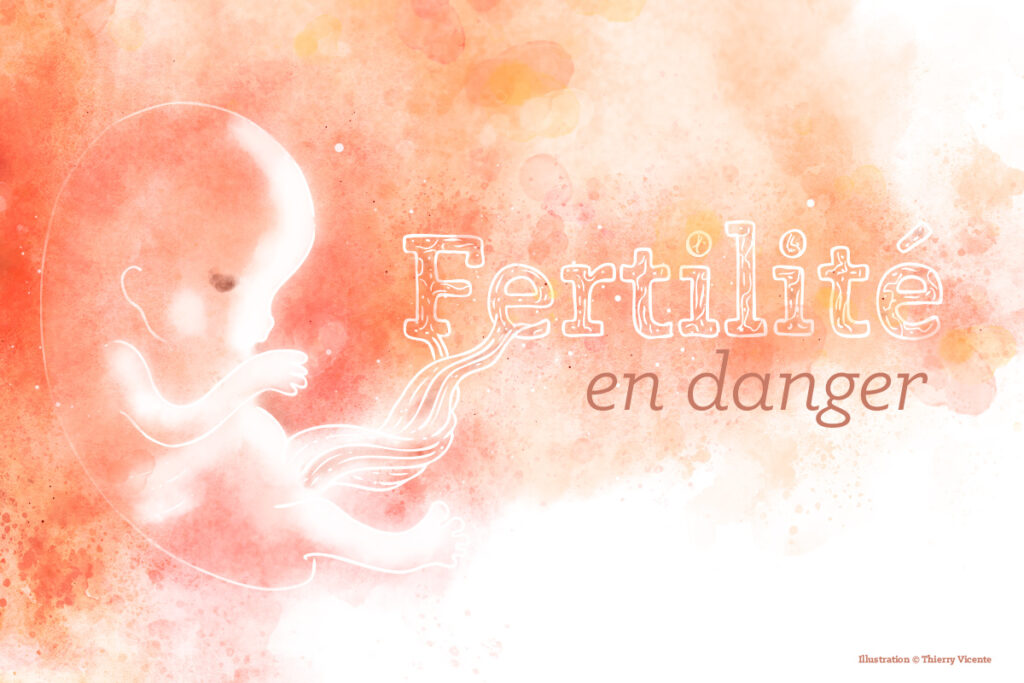[LUM#4] Fertility at risk
Is having a baby easy? Not always... More and more couples are finding it difficult to conceive. When faced with infertility, reproductive biology specialist Samir Hamamah has one piece of advice: prevention.

1 in 6. That is the proportion of couples who are unable to conceive without medical assistance. It is a worrying figure, "and one that continues to rise," warns Professor Samir Hamamah, head of the reproductive biology department at Montpellier University Hospital. According to the specialist, in some cases infertility is directly attributable to our lifestyle. Alcohol, tobacco, drugs? He is not referring to these well-known scourges, but to others that are as discreet as they are omnipresent: the chemicals we are exposed to every day from birth... and even long before. " The fetus is already exposed to these products in the womb, which can affect the fertility of the unborn child," explains the director of Inserm Unit U1203. Endocrine and environmental disruptors, pesticides, volatile organic compounds—these are just some of the dangerous substances hidden in even the most innocuous everyday products.
"If you put on lipstick, you're coating yourself with glycol ether; when you heat up a frozen meal in the microwave, you're ingesting phthalates." In total, there are more than a hundred molecules that are toxic to "reproductive health" that we handle every day, often without knowing it. "Reproductive health is very fragile, "warns Samir Hamamah. "We must take care of it as soon as possible, otherwise we will pay the price for several generations to come. We must make infertility a national cause!" For the specialist, it is urgent to put in place a real prevention strategy: "We must alert young people to the consequences of these exposures, tell them from an early age that their lifestyle can compromise their future plans to have children."
Prevent
This is especially true given that fertility is also being undermined by changes in our societies. On average, women now have their first child around the age of 30. "A woman's age is a significant risk factor for infertility because the quality of her oocytes, the female reproductive cells, declines over time." At age 20, 1 in 2 oocytes carries genetic abnormalities that are sometimes incompatible with pregnancy. At age 40, 9 out of 10 oocytes are no longer viable.
How can this major difficulty be overcome, given that the age of motherhood is constantly increasing? For Samir Hamamah, the answer is obvious: "All young women who do not yet have plans to start a family should be offered the option of freezing their eggs so that they can use them later if necessary." If they ever have difficulty getting pregnant, they will be able to use these "young" eggs for in vitro fertilization, thereby optimizing their chances of having a baby. For the specialist, this "preservation of fertility through freezing" is a real necessity. "Today in France, women of childbearing age do not have this option, whereas men can benefit from it if they wish," explains the practitioner.
3D to the rescue of fertility
This is especially true given that the success rate of medically assisted reproduction techniques remains relatively low, with only 20% of IVF procedures resulting in a successful pregnancy. Samir Hamamah's team has made considerable progress in this field. The latest revolution—and a world first—is Embryoscan, a three-dimensional modeling of embryos to increase the success rate of IVF. "To perform IVF, several oocytes are collected from the future mother and fertilized with sperm. On average, we obtain five embryos, which are not all of equal quality," explains Samir Hamamah.
How do you choose which embryo to implant in the mother-to-be's uterus? This is where 3D technology comes in. "The embryo is scanned from all angles, then software reconstructs a three-dimensional image, which is then produced using a 3D printer." The result: the practitioner can examine the embryo from every angle to detect any defects that would make pregnancy impossible. These are details that are not visible under a 2D microscope. "It's a revolutionary non-invasive process for improving embryo selection while fully complying with ethical rules," says Samir Hamamah.
The reproductive biologist now has another major goal: to create an institute dedicated to human fertility in Montpellier. "Infertility requires a multidisciplinary approach involving gynecologists, reproductive biologists, geneticists, andrologists, urologists, endocrinologists, and reproductive researchers, as well as psychologists and sexologists. Couples need to be offered a place where all these skills are available, giving them the chance to enter this process with a plan to become parents and leave with a baby."
Stop feeling guilty
"Infertility is too often seen as a shameful condition. Couples who have difficulty conceiving experience it as a failure, and women in particular feel terribly guilty about their difficulties in having a child," says Samir Hamamah. To change perceptions of infertility, the reproductive biologist is campaigning for it to be considered an illness and points out that there are many reasons why a couple may be unable to conceive. "In one-third of cases, the problem lies with the woman; in another third, it lies with the man; and in the remaining third, there are contributing factors that explain the inability to conceive without medical assistance."
Find UM podcasts now available on your favorite platform (Spotify, Deezer, Apple Podcasts, Amazon Music, etc.).